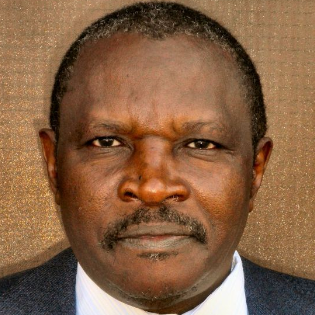
Nerey H. Mvungi
Work place: College of Information and Communication Technologies, University of Dar es Salaam, Dar es Salaam, Tanzania
E-mail: nhmvungi@udsm.ac.tz
Website:
Research Interests: Computational Engineering, Engineering
Biography
Nerey H. Mvungi received the B.Sc. degree in electrical engineering from the University Dare es Salaam, Tanzania, in 1978; the M.Sc. degree in electronics control from Salford University, U.K. in 1980; and the Ph.D. degree from Leeds University Leeds, U.K. in 1989. He worked for a year with the Phillips Center for Technology, Eindhoven, Eindhoven, the Netherlands February 1992 to Feb 1993. He was attached to Onersol Solar Energy Research Centre in Niamey June-July 1991 as ILO Consultant on Solar Energy Systems.
Since his undergraduate graduation in 1978, he has worked as an academician and is now a full professor. He has mostly worked in the University of Dar es Salaam but for the period of September 2008 to June 2012 when he was at the University Dodoma in Tanzania to starting a new IT College as its founding Principal.
Prof. Mvungi’s research interests are in control and instrumentation, computer communication and applied electronics, lightning protection, rural access, power-quality aspects, and remote monitoring and control of energy consumption and digital broadcasting. He received a 2010 IBM Faculty Award.
Author Articles
Forward Error Correction Convolutional Codes for RTAs’ Networks: An Overview
By Salehe I. Mrutu Anael Sam Nerey H. Mvungi
DOI: https://doi.org/10.5815/ijcnis.2014.07.03, Pub. Date: 8 Jun. 2014
For more than half a century, Forward Error Correction Convolutional Codes (FEC-CC) have been in use to provide reliable data communication over various communication networks. The recent high increase of mobile communication services that require both bandwidth intensive and interactive Real Time Applications (RTAs) impose an increased demand for fast and reliable wireless communication networks. Transmission burst errors; data decoding complexity and jitter are identified as key factors influencing the quality of service of RTAs implementation over wireless transmission media. This paper reviews FEC-CC as one of the most commonly used algorithm in Forward Error Correction for the purpose of improving its operational performance. Under this category, we have analyzed various previous works for their strengths and weaknesses in decoding FEC-CC. A comparison of various decoding algorithms is made based on their decoding computational complexity.
[...] Read more.Other Articles
Subscribe to receive issue release notifications and newsletters from MECS Press journals